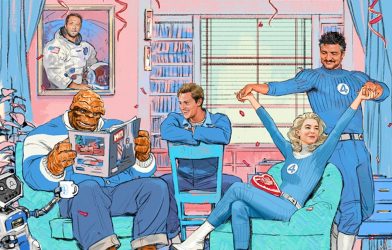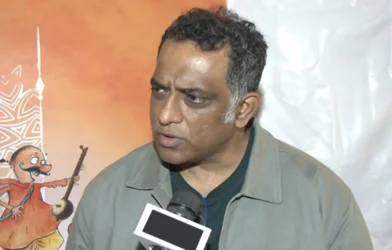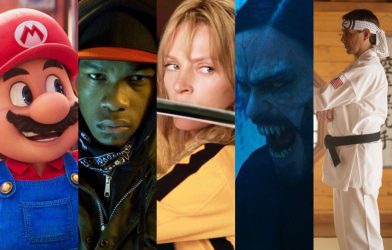
Getty Images for CinemaCon
NBCUniversal chief content officer tackled several hot topics in UCLA Entertainment Symposium keynote.
Donna Langley wants you to look on the bright side.
NBCUniversal’s chief content officer underscored the need for optimism in this troubled time in Hollywood – where austerity reigns, jobs are scarce and creatives are vexed by the approaching AI revolution.
“Everybody is talking about the doom and gloom of our industry, but we have to be believers,” Langley told legal legend Ken Ziffren on Friday, keynoting UCLA’s annual entertainment symposium.
The pair were specifically discussing the urgent dilemma in front of legacy media companies and tech giants – how to monetize streaming content as linear television and theatrical moviegoing continue to fall out of consumer favor.
“Broadcast is a huge platform and a great megaphone for our brands and IP. We care about it from a dollars-and-cents perspective, but we’re not interested in accelerating its decline,” said Langley, who last year absorbed creative control of NBCUniversal’s television operations in addition to her duties at Universal Pictures. “Peacock is doing well, relatively speaking. It was a late entrant. We have 34 million paid subscribers; those are real subscribers. The business is benefitted by sports and audiences are understanding our films are going to go there first run.”
Ziffren, an architect of media business models for decades, asked the executive about the coming wave of streaming bundles – where multiple platforms will be offered to subscribers in hopes to compete with the hundreds of millions of eyeballs on services like Netflix and Disney+.
“Bundling is an inevitability of the future. If it accelerates the streaming piece of it, that’s ok. But our broadcast audience? The median age is 60 and is only going to continue to get older. We have to find ways to innovate in digital spaces,” she said.
Luckily, perhaps, Langley said that future hasn’t quite crashed through the front door.
“There’s a clear audience delineation between NBC and Peacock. Even with Bravo, it does very well on both platforms – it reaches 101 million people. There’s a very small amount of audience overlap [between streaming and broadcast] and there’s major age difference,” she said. Langley also said she and her leadership teams are tinkering with ways to develop shows for streaming and migrate them to broadcast, what she called “aging down incrementally.”
The conversation capped with a discussion about artificial intelligence, which many Hollywood guilds (and many others in ancillary businesses) fear.
“We really look at it in a few different ways. Number one, the labor piece of it has to be right. We cannot infringe on people’s rights,” Langley said, prompting audience applause. “We also need to protect our IP. We need sophisticated copyright laws so we’re not disadvantaged. We also need to have our freedom in working with our creative partners.”









